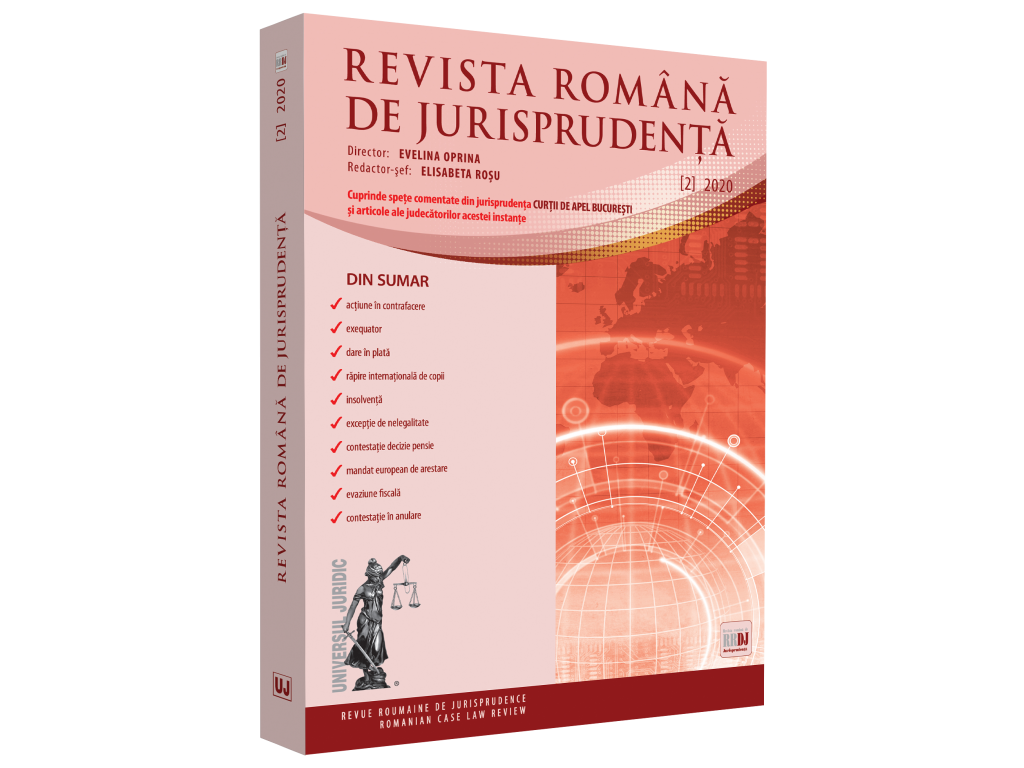Political party. Rejection of hearing the expert evidence. Compliance with the provisions of art. 6 of the Convention for the Protection of Human Rights and Fundamental Freedoms. Valuation of the similarity of the political sign by the court of law
DREPT CIVIL ȘI DREPT PROCESUAL CIVIL
Abstract
The Convention for the Protection of Human Rights and Fundamental Freedoms shall not govern the regime of evidence, as such (Mantovanelli against France, item 34). Admissibility of evidence and their assessment first of all, fall within the applicability of the domestic law and national courts [García Ruiz against Spain (MC), item 28]. The situation is similar as regards the evidential value and the burden of proof [Tiemann against France and Germany (dec. )]. Moreover, the national court appreciates the utility of the proposed evidence [Centro Europa 7 S. r. l. and Di Stefano against Italy (MC), item 98]. In the Romanian legislation, the legislator governed the manner and the conditions under which the rules of evidence may be proposed and produced under the provisions of articles 249-365 of the Code of Civil Procedure. Thus, in compliance with article 255 of the Code of Civil Procedure, “”Evidence should be admissible according to law and lead to the settlement of the legal action”. The court fairly considered the need for granting and producing the specialty expert evidence, taking into consideration the object of the action, respectively the registration of a political party. The difference between permanent signs shall be assessed, first of all, by the court seized with the application for registration of a political party. The court establishes, first of all, whether there is any clue showing the identity between the permanent sign of the respective party with the permanent sign of a political party which is already registered. The court of first instance is not required to grant and produce the specialty expert evidence, and the refusal to order any evidence is, per se, unfair (H. against France, items 61 and 70). Moreover, the expert evidence is not useful for the case settlement, since, according to the provisions of art. 5 para. (1) of Law no. 14/2003, an expert’s opinion is not necessary to conclude whether those two permanent signs differ, this being only a matter of perception on the audience. As regards the similarity of the political party sign, it was indicated that, indeed, the legislator had taken into account that the full name, the shortened name and the permanent sign of a political party (each identification element separately) be clearly distinguished from those of the previously registered political parties, as a simple difference was not adequate, only with regard to certain distinctive elements (since the identification elements are not always used together and in any context). First of all, the overview of the permanent sign should be taken into account, whether there is a visual, conceptual or phonetic similarity and whether there is any risk of direct confusion or by association.








